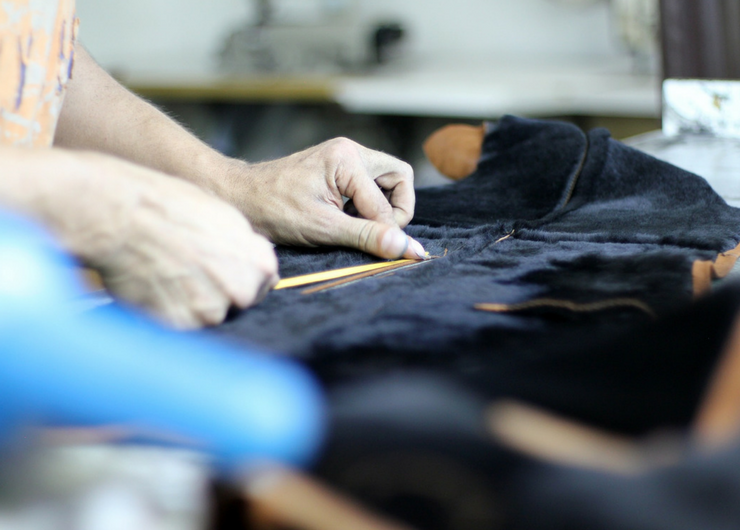On a seasonally adjusted basis, the NAB Online Retail Sales Index recorded a drop in growth in July


Insight
Ethical fashion is the right thing to do and also makes good business sense, guests were told at a Fashion Festival forum on responsibility and transparency in fashion.

“Transparency is the new black,” declared fashion writer Patty Huntington at the Fashion Industry Forum, supported by NAB
More labels are trying to source their goods and materials from ethical sources which don’t exploit workers or damage the environment. Many of them are also releasing details of their supply chains so consumers can ensure they are ethical.
Huntington described the 2013 collapse of the Rana Plaza in Bangladesh building which killed 1100 garment workers as “fashion’s 911” and noted that since then transparency has become a mainstream issue.
In fact, some brands try to disclose all of their suppliers and US online fashion retailers Everlane uses “radical transparency” as a marketing tool.
But it isn’t always easy for small labels to source ethical suppliers.
One of the business event at the Virgin Australia Melbourne Fashion Festival, the forum heard from designer Lois McGruen-Fraser, who started her Melbourne-based label Lois Hazel in 2014 with the aim of being a transparent business.
The small orders she typically makes are sometimes too small for some ethical suppliers and so she makes a lot of her goods herself. It can also add to the costs of her clothes.
“The reality is it’s hard,” McGruen-Fraser.
She wants people to buy her clothes because they like the designs. “I don’t want people to buy it because they want ethical clothing. I want that to be a normal part of fashion,” she says.
“It’s about striving towards doing the best we can. We are a wealthy country in Australia and we can afford to invest in ethical fashion.
McGruen-Fraser chose to produce ethical fashion because it is the right thing to do, but Aneka Manners, State General Manager of NAB Business in Victoria and Tasmania, said there were other good reasons as well.
Ethical fashion is a way of doing good and sustainable business, Manners said. More generally though, she outlined how strong ethics and relationships are the key to sustainable business.
In terms of securing finance for example, one of the key indicators of whether a person is creditworthy is their character.
“Who are you? How do you deal with people? Are you transparent? Do you have integrity? How will you behave when things go wrong, as they inevitably will, with us, your suppliers and your customers?” Manners said.
“Why character first? Because that character, you, makes all the decisions about everything else and we are backing your ability to make great decisions’.
Relationships are also important to customers, said Manners:
57 per cent of customers will refuse to buy products and services from a company they don’t trust.
If customers trust a brand, 83 per cent of them will recommend it to someone else.
78 per cent of customers who trust a brand will try their new products.
47 per cent of customers who trust a brand will pay more for their goods and services.
Being an ethical brand can cost more, but is worthwhile.
“You’re doing it because it makes good business sense,” Manners said. “This is not just nice to do. This makes sense because people care where their things come from and they care about who your brand is.”
Ethics and relationships are also important to employees, suppliers and investors, and there are many instances where businesses have been able to draw on strong relationships to help them survive through a difficult period.
Manners rejected an old business adage: “Don’t leave money on the table when you do a deal.”
“Leave enough money on the table so that everyone makes their share. Great sustainable relationships are about give and take’.
Tim Diamond, who runs Cotton On’s Cotton On Foundation supporting educational and development projects in the developing world, said fashion brands can help improve living standards with transparent sourcing.
Fashion brands will need to be more open about where their clothes come from. “It’s going to change the whole industry because every customer’s going to be asking for it and it will probably be the death of some companies that can’t do it,” he said.
© National Australia Bank Limited. ABN 12 004 044 937 AFSL and Australian Credit Licence 230686.